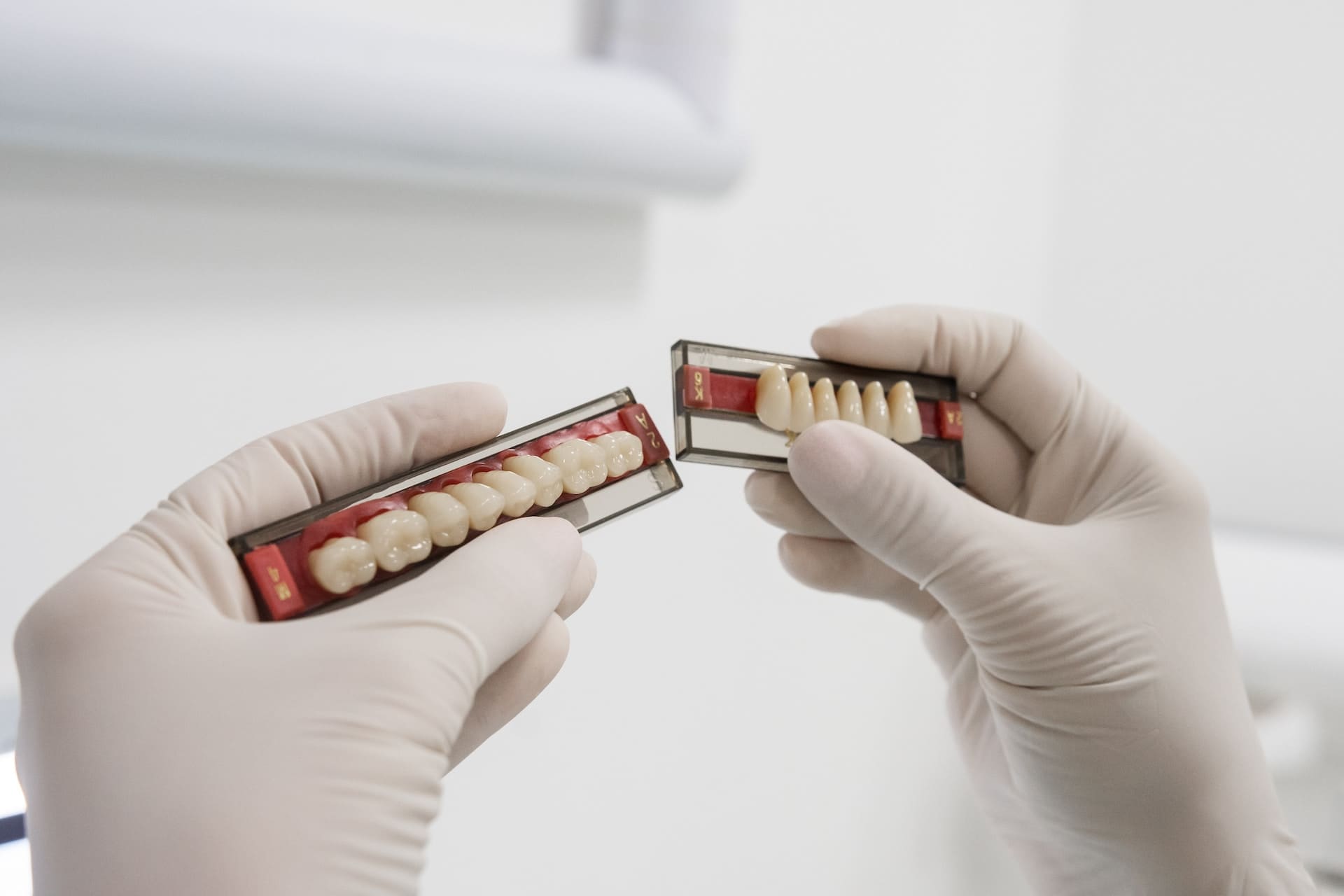Tooth loss can be a challenging and unfortunate experience, impacting not only your self-esteem but also your overall oral health. Dentures, a time-tested and effective dental solution, have brought relief to countless individuals by replacing missing teeth and restoring their function and aesthetics.
Dentures are removable dental prosthetics designed to replace missing teeth and the surrounding gum tissue. They come in various forms, catering to different dental conditions, and can be tailored to meet the specific needs and preferences of each patient. Additionally, dentures offer a range of benefits, such as improving oral function, preserving facial structure, and boosting self-confidence.
At Mass Dental Associates, a leading dental office in Boston, MA, our skilled dentists is committed to providing patients with comfortable and aesthetically pleasing denture treatments that promote confidence, functionality, and overall well-being.
In this blog post, we aim to give you a comprehensive understanding of dentures, covering the various types available, their benefits, and proper care tips to ensure the longevity and comfort of your denture solution.
Types of Dentures
Dentures come in various forms and designs, each catering to specific dental conditions and patient needs. The primary types of dentures include:
1. Complete Dentures: Complete dentures, or full dentures, replace an entire arch of missing teeth and are suitable for individuals who have lost all their teeth due to injury, decay, or gum disease. Complete dentures consist of a gum-colored base and a full set of artificial teeth, creating an entirely new smile.
2. Partial Dentures: Partial dentures are ideal for patients who have some healthy remaining teeth. These dentures feature a metal or acrylic framework that attaches to the existing teeth, holding the artificial teeth in place while closing gaps and preserving the remaining healthy teeth’s position.
3. Implant-Supported Dentures: Implant-supported dentures are securely anchored in the mouth using dental implants, offering increased stability and comfort. This type of denture is divided into two categories: removable implant-supported dentures, also known as overdentures, and fixed implant-supported dentures, or hybrid dentures.
4. Immediate Dentures: Immediate dentures are a type of temporary denture designed to be worn immediately after tooth extractions. These dentures allow patients to maintain oral function and aesthetics while the gums and tissues heal and prepare for the placement of permanent dentures.
Benefits of Dentures
Dentures offer a range of advantages to individuals experiencing tooth loss, including:
1. Improved Oral Function: Dentures restore your ability to chew and speak, making daily activities like eating and conversing more comfortable and enjoyable.
2. Enhanced Facial Structure: Dentures help maintain the shape and structure of your face, preventing the sunken or sagging appearance that can result from tooth loss.
3. Boosted Confidence: Dentures can give you a natural-looking smile, increasing your self-esteem and enabling you to feel more confident in social and professional situations.
4. Ease of Maintenance: Dentures are removable and easy to clean, making it simpler to maintain good oral hygiene and overall dental health.
5. Versatility: With the variety of denture types available, you can find a suitable solution tailored to your specific needs and preferences.
Caring for Your Dentures
Proper care is essential to ensure the longevity, comfort, and functionality of your dentures. Following these care tips will help keep your dentures in optimal condition:
1. Daily Cleaning: Clean your dentures every day using a soft-bristled toothbrush and water or a non-abrasive denture cleaner. Avoid using toothpaste, as it can scratch and damage your dentures.
2. Nighttime Soaking: Remove your dentures before going to bed and soak them in a denture-cleaning solution overnight. This preserves the shape and fit of your dentures and helps eliminate harmful bacteria.
3. Regular Dental Checkups: Schedule routine visits to your dentist to ensure the proper fit, function, and appearance of your dentures. Your dentist can also spot any issues early, helping maintain your overall oral health.
4. Handling with Care: Dentures, particularly those made of acrylic, can be fragile and may break if dropped. Handle your dentures with care when cleaning or taking them in and out of your mouth.
5. Maintaining Oral Hygiene: Even when wearing dentures, it is crucial to maintain good oral hygiene, including brushing your gums, tongue, and the roof of your mouth daily, as well as keeping any remaining natural teeth clean.
Final Thoughts
Dentures provide a reliable and versatile solution for individuals experiencing tooth loss, offering an array of benefits that contribute to improved oral health, function, and confidence. By understanding the various types of dentures, their advantages, and essential care tips, you will be better equipped to make informed decisions regarding your dental health.
At Mass Dental Associates in Boston, MA, our experienced and compassionate dental team is dedicated to providing exceptional denture treatments, working closely with you to achieve the results you desire. Scheduling a consultation with our best Boston dentist today is the first step towards regaining your radiant and healthy smile!


